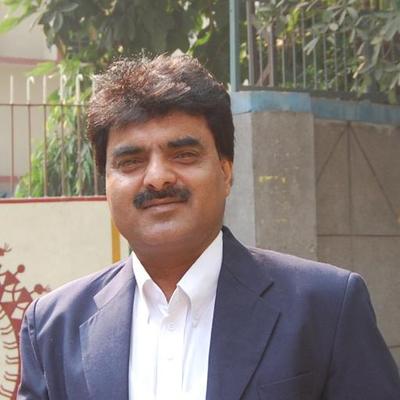
New Delhi: City-based Global Inclusive Educational Network (GIEN), which works to achieve inclusive education by refining practices, conducting research, promoting collaborations, and supporting educators, has launched world’s largest survey on reading fluency in collaboration with Canada-based, through its new app, ReadON Plus.
The survey, which is free to use, will run in India and uncover information about reading fluency, grade-level reading levels, executive functioning, and cognitive skills. It will provide a clearer understanding of how people read and how they learn over time. In addition, the study will evaluate how easily non-native English speakers can read.

The survey will be coordinated by Satish Kapoor, founder of GIEN and founder director of Brotherhood and We Care Film Festivals on disability issues, in New Delhi alongwith Professor Sandhya Limaye, Ph.D., of the Tata Institute of Social Sciences, Mumbai. Dr. Bhuvanesh Awasthi, Ph.D., director of research and training, will lead this study at Orange Neurosciences, Canada.
Orange Neurosciences is a digital healthcare company from Kingston, Ontario, Canada that brings next-generation cognitive therapies to address the needs of struggling readers with its online platform ReadON, and to target the core symptoms of ADHD and Autism with Titli, which will be released in summer 2021.
“Our purpose is to provide information to schools and policy-makers to give them a better understanding of how we can improve learning and how to provide the proper interventions,” said Dr. Vinay Singh, founder and CEO of Orange Neurosciences. “There have been similar though smaller studies carried out before; we are aiming for 100,000 respondents to complete the survey.”
The ReadON Plus survey app is developed by a research and development team with expertise in big data, machine learning, bioinformatics and cognitive neurosciences. It is available for Android and Apple devices. The survey can be re-taken every seven days so parents can see how their child’s reading is progressing over the period. It is free to use.
“Parents and teachers need the right tools to help their students,” Prof. Limaye said. “This survey will give us deep data to develop those tools and methodologies to help kids succeed. “Numerous studies have proven that the ability to read well impacts individuals long after they leave the classroom and is one of the most significant indicators of a person’s ability to earn.”
“Beginner readers use the parieto-temporal area of the brain to learn to read. They have to decode and identify one word at a time, which causes them to read slowly, impacting comprehension. Experienced readers, on the other hand, use the occipito-temporal area of the brain. For these readers, the skills needed for reading have become automatic, and readers can go directly from what their eyes see to meaning,” explained Dr. Awasthi, whose research in Australia focused on cognitive neuroscience.
Being able to read and comprehend quickly gives fluent readers a massive advantage at school and in the workplace.
“There is likely not a family in the world that doesn’t have a member who struggles to read because of a learning difference,” said Singh. “The results of the survey could have a big impact across the country, indeed around the world.”
Studies point to a substantial gap in the earnings of strong readers over weaker readers. Over a lifetime, that has a significant economic outcome. Stronger readers are also shown to have better health.
“The findings from this survey will impact the development of inclusive education policies and empower all stakeholders in this ecosystem, including school administrators, principals, teachers, students, and parents,” explained Satish Kapoor, who is also the c0-author of highly acclaimed Quality Indicators for Inclusive Education along with Professor N K Jangira.
– global bihari bureau





